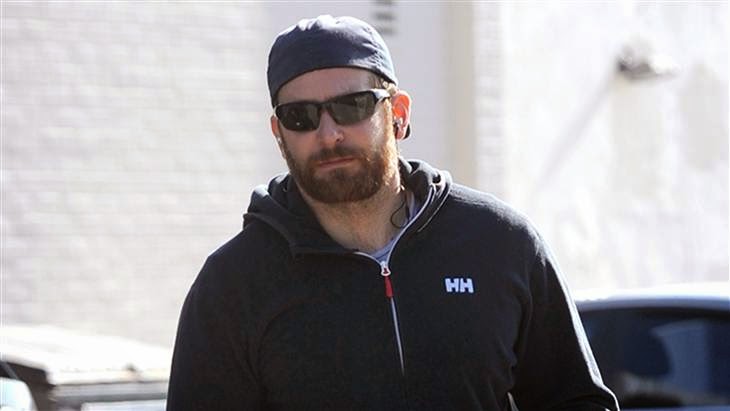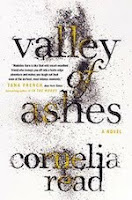from Jacqueline
A few weeks ago, just before my riding accident, I picked up
a copy of Michael Korda’s book Another
Life (published in 2000) in my favorite used bookstore, Bart’s Books in
Ojai, CA – so in that first week, while languishing in my bed wondering if that
bone poking up a bit close to my neck would actually burst through the skin if
I moved the wrong way, I set about reading. Another Life brought back a raft of memories - and though I have written about this part of my life before, I'm giving it another go-round.
Korda was the Editor-in-Chief at Simon and Schuster, and
became their “Editor Emeritus” in later years (He’s now 81 years of age). The book is a memoir of his many years with
S&S, from the lowly position of editorial assistant, and because I
once worked in the publishing industry, albeit when I was still very green and
young, I enjoyed the book immensely – it brought back memories.
Now, just to get one thing straight – working as assistant
to the sales director at a publisher of
general books for all of one year at age 23 does not help to get one’s novel published when one is 46. I went from that company into academic
publishing, and though I made lifelong friends in the job, not one of them
could have helped me get a book published.
I say this because there are people who have said to me, upon hearing
that I once worked in publishing, “Oh, so that’s how you got your book
published!” And all I can say is,
“Chance would have been a fine thing!”
In fact, I became incredibly disillusioned about my chances of ever
becoming a writer. But let me tell you
about those days (and Sybille, are you reading this?).
I was a flight attendant when I came to the conclusion that I
wanted to get a job in publishing. This
made perfect sense to me – after all, when I left college, I knew I wanted to
travel, so I landed a job with an airline because I could not afford to travel
and needed a way to see more of the world.
My theory was, go straight to the source. If you want something, find a cheap way of
getting it. And because I had a book
habit that was going to bankrupt me before age 25 if I wasn’t careful,
publishing seemed like a good idea.
However, getting a job in a serious industry if you’re a flight
attendant has its challenges – I might as well have been a bunny girl trying
out for the nunnery.
One of the points Korda makes in his book, is that at one
time publishing was a job considered acceptable to the debutante class of young
women while they waited to land a husband – and though things had changed by
the time I went into the industry, there was still a sense that it was a job
for nice young society “gels.” Not flight
attendants. I applied to a raft of
publishers, to no avail. But fate
stepped in – my flatmate’s boyfriend’s parents’ neighbor (that’s how these
things go) worked for a London publisher, based in Fitzroy Square. Corinne – yes, of “Travels With Corinne” –
arranged it so I would meet this man over drinks in her boyfriend’s parents' back garden
one summer weekend. Mr. Kiek was a lovely
gentleman, close to retirement, and he mentioned that his boss, the Sales
Director, needed a new secretary. He
asked if I could type. “I can learn,” I
said.
I had a meeting with Mr. Roy (only other directors called
him by his first name) the following week.
He had been a Battle of Britain pilot at age 18 – which meant he was lucky
to be alive at 19. We talked about
aircraft for half an hour and he offered me the job. My friend Diane, who was the export director’s
assistant, before she moved into Contracts and Rights, later told me that when
word went round about Mr. Roy’s new secretary, everyone was saying, “And she’s
an airline stewardess???”
I sort of learned to type, but the great thing was that Mr.
Roy's "Assistant Sales Manager" left after I’d been in the job three months, and recommended me
to be her successor – phew! Now the only
typing (oh the joys of a Selectric typewriter) I would have to do was my own. Soon I was responsible for (among other things) the reprint
program, which entailed monthly meetings with editors, haggling over whether a
book due to go out of print should be reprinted. I had to gauge the sales
history against possible future orders, and before I knew it, I was deciding
the fate of some pretty big authors.
Looking back, there was no way I would have given that amount of
responsibility to a 23-year old. Mind
you, I took to it like a duck to water – and the best thing about my job? Free
books!!!!
Oh it was fun – and what a great gang I worked with –
Sybille who had the desk next to mine, Fiona and Maria in Export Sales, Diane
in Rights. I loved sitting out in the
square at lunchtime on spring and summer days, and there was always a well-known author or
two around the office, though they didn't necessarily inspire one. Soon I was going with Mr.
Roy to meetings with the big bookstore buyers to present the new list, or I was
meeting with authors and planning book tours.
I often think of those days when I’m in the midst of a grueling book
tour – I can think of at least one author who must have cursed the ground I
walked on for planning so many events in one week.
Korda’s memoir encompasses many of the changes in publishing during his tenure – from being a “gentleman’s business”
to a market-driven industry of big companies buying other big companies. Indeed, during that year I worked in the
industry, I saw those changes happening. On the one hand you had stores like
Foyles in London, where reps lined up in a dingy Victorian basement to have their orders
stamped by the general manager, a crazy Serbo-Croatian (who, if you believed
his stories, had fought with both the Russians and the Nazis during the war,
when he was in the Resistance – go figure that one out). I had seen him make grown men cry – bringing
seasoned publishers’ reps to their knees with fear of him ripping up orders he
didn’t like. Yet on the other hand, all sorts of new merchandising was coming
in, and advertising on TV and radio. It
fascinated me, and I loved it. But the
more I found out about this “world of books” – the more I believed my dream of
one day publishing a novel would remain just that – a dream. And it was the man who worked the post room who
showed me just how fickle the industry could be.
The post room was in the basement of one of the rather grand
buildings in Fitzroy Square – it was the building that housed “editorial” (the
“posh” department). The sales department
was across on the other side, in a much smaller building. I often stopped to chat to Maurice, the man
who sorted and delivered the mail to the different departments. Maurice would be sorting while we talked, and
on this day I noticed that every so often he would fling a package into a giant
canvas bin. It had a sort of rhythm to
it, this sorting – letter, letter, letter, package, fling – letter, letter,
letter, package, fling. “Maurice ,” I
said. “What’s in those packages – why are you throwing them in that bin over
there?” “Oh,” he replied, “they’re
manuscripts people send in, you know, wanting to see if they can get published.
I just throw them over there, then if one of the girls in editorial hasn’t much
to do, she’ll come down and grab one, have a quick read, you know.”
I was crestfallen as I walked across the square that day,
thinking about all the hard work and hope that had gone into those manuscripts
(typed, no doubt, on old black typewriters, on kitchen tables, or in bedrooms in
the half-light, so as not to wake a spouse), only to be flung into a bin and
languish there until a girl from editorial came down to the basement looking
for a quick read.
But times change again, and arguably, there has never been a
better time to have a crack at being published. Look at all the opportunities that abound today.
OK, it’s still not easy, but not only are there new smaller publishing
companies pushing up, but there are self-publishing and e-book options that
weren’t available even ten years ago. New media has a hunger for fresh stories, and the bigger publishers are vying to stay ahead of the game. And if you’ve been following Jim’s posts on
finding and landing an agent, remember that the agents are looking for authors,
fresh talent and new writing to put in front of editors. You just have to give yourself the best
possible shot, and write the best book you can possibly write.
Why did I leave a job I enjoyed after only one year? I wanted to work in outside sales for the company, and I was
told that women didn’t go out to sell – and that was in the late 70’s. So I moved into academic publishing, where
women indeed went out to sell. You see,
by that time I needed a car, and well … with outside sales they gave you a
company car.































